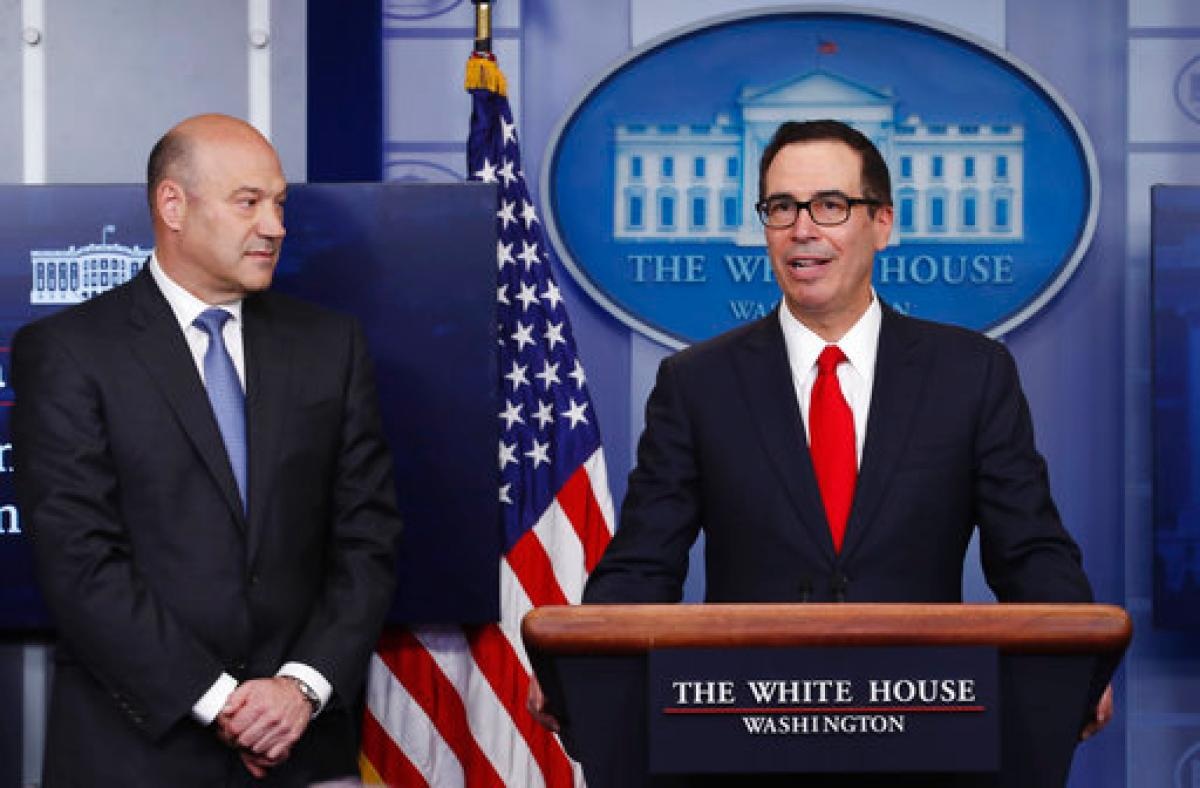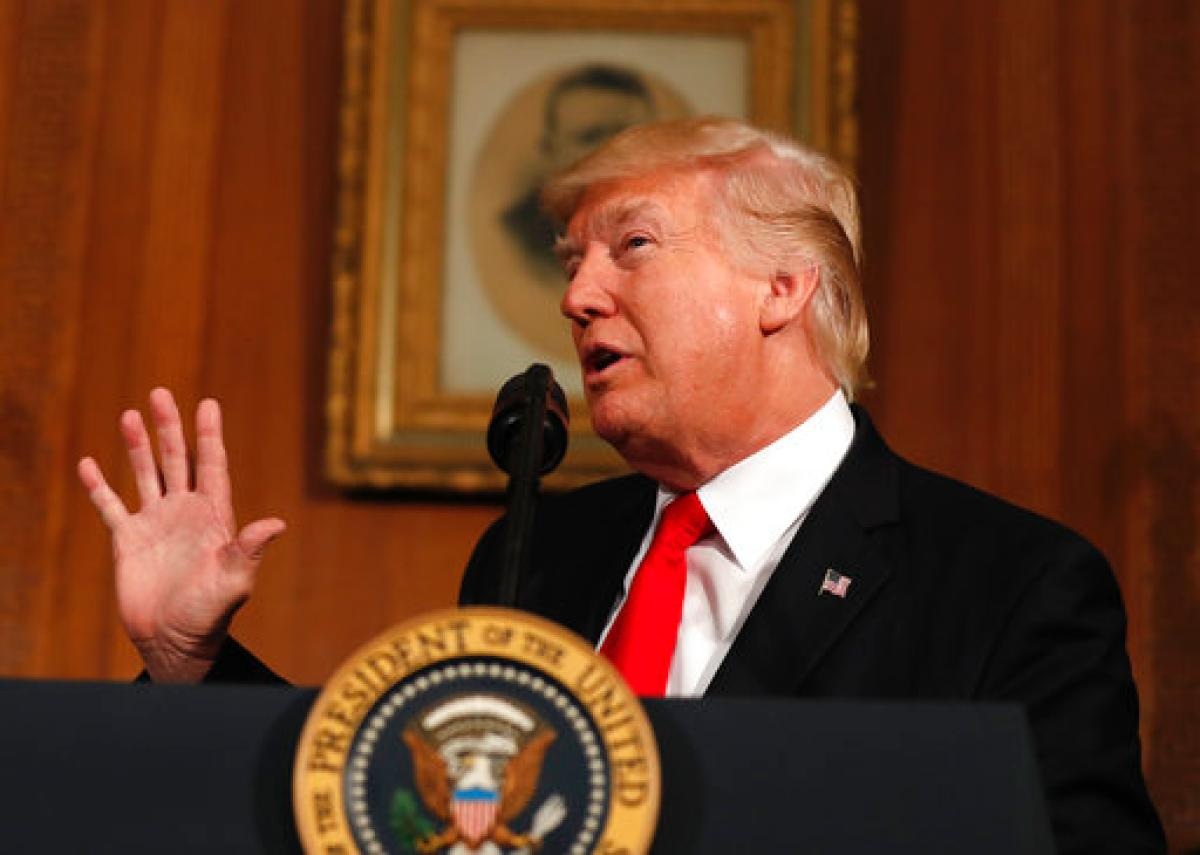Trump administration unveils tax cut principles

Treasury Secretary Steven Mnuchin, joined by National Economic Director Gary Cohn, speaks in the briefing room of the White House in Washington, Wednesday, April 26, 2017. President Donald Trump is proposing dramatically reducing the taxes paid by corporations big and small in an overhaul his administration says will spur economic growth and bring jobs and prosperity to the middle class. [Photo: AP]
U.S. President Donald Trump's administration on Wednesday unveiled the principles of the long-awaited tax reform plan that will significantly cut income taxes for Americans and corporates, ahead of the administration's first 100 days in office.
The plan would reduce the number of personal income tax brackets to three from seven, and it would cut the top individual income tax rate to 35 percent from 39.6 percent, Gary Cohn, director of the White House National Economic Council (NEC), said at a press briefing at the White House.
At the same time, the plan would cut the corporate income tax rate to 15 percent from 35 percent, and it would also impose a one-time tax on overseas profits of U.S. companies, U.S. Treasury Secretary Steven Mnuchin said at the same press briefing.
That "will bring back trillions of dollars that are offshore to be invested here in the United States, to purchase capital and to create jobs," he said.
The plan would also eliminate all tax deductions for individuals except from mortgage interests and charitable tax deductions, according to Mnuchin.

President Donald Trump speaks at the Interior Department in Washington, Wednesday, April, 26, 2017. The president is proposing dramatically reducing the taxes paid by corporations big and small in an overhaul his administration says will spur economic growth and bring jobs and prosperity to the middle class. [Photo: AP]
"We have a once-in-a-generation opportunity to do something really big," Cohn said, noting President Donald Trump has made tax reform a priority and the Republican-controlled Congress also wants to get it done.
"We are determined to move as fast as we can and get this done this year," Mnuchin added.
However, it's still unclear whether the plan, what U.S. officials called the "biggest tax cut" in U.S. history, would be revenue-neutral or would significantly increase U.S. fiscal deficits.
Mnuchin has repeatedly argued that the administration would count on the compounding effect of strong economic growth over the next decade to finance the tax cuts.
"This will pay for itself with growth and with reduction of different deductions and closing loopholes," he said.
However, many economists are skeptical about that argument, as the U.S. economic growth will average about only 1.9 percent over the next ten years, according to the nonpartisan Congressional Budget Office.
"In order for a corporate income tax cut to 15 percent to be self-financing, it would have to raise the level of growth to 2.8 percent on average," said Alan Cole, an economist at the Tax Foundation, adding most economic models would not expect the tax cuts to boost U.S. growth by additional 0.9 percentage points over the 10-year budget window.
The details of a complete tax proposal probably won't be ready until June, according to Mick Mulvaney, director of the White House Office of Management and Budget.
"You can either have a small tax cut that's permanent or a large tax cut that is short-term. I don't think we decided that," Mulvaney told Fox News on Sunday.

